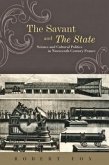Eight years before the French Revolution, the paper mill at Vidalon-le-Haut was the setting for a bitter strike and successful lockout. This labor dispute, resulting from conflicts between master papermakers and skilled journeymen, ultimately benefitted the mill's owners and administrators--the Montgolfier family. They converted the 1781 lockout into an opportunity to train a new kind of worker, a malleable employee, and to fashion a new sort of workplace, a theater of technological experiment. Papermaking in Eighteenth-Century France: Management, Labor, and Revolution at the Montgolfier Mill, 1761-1805, gives us history from the workshop up, offering the most comprehensive exploration available of the historical experience of papermaking. Leonard N. Rosenband explains how paper was made, depicting the tools, techniques, raw materials, and seasonable flows of the craft, and explores the many conflicts and compromises between masters and men. Rosenband provides a compelling account of how technological change affected the papermaking industry, transforming an elaborate, established system of production. The Montgolfier archives are a rich source of information, providing records of daily output and procedures, including complex rules ranging from the precise hours of meals and prayer to matters of propriety and personal sanitation. They also provide insight into the attitudes of the Montgolfier family and their workers--what they made of their trade, their labor, and one another. This case study of the Montgolfier mill, adding details about technological innovation and shopfloor relations during a time of social unrest, enriches the current debate about the nature and impact ofcapitalism in France during the years leading up to the French Revolution.


![The Story of Mediæval France: From the Reign of Hugues Capet to the Beginning of the Eighteenth [I.E. Sixteenth] Century The Story of Mediæval France: From the Reign of Hugues Capet to the Beginning of the Eighteenth [I.E. Sixteenth] Century](https://bilder.buecher.de/produkte/68/68638/68638334m.jpg)





